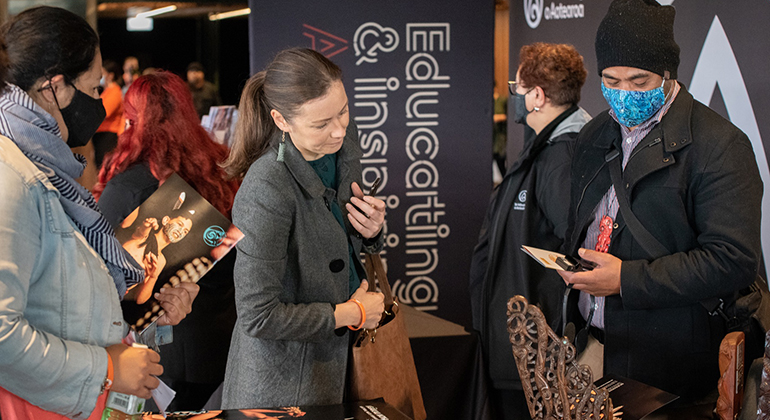Ngā putanga toharite ki a ngāi Māori mā roto i te mātauranga me mahi | Enabling equitable outcomes for Māori through education and work
On this page

© Melissa Banks
Māori make up an increasingly significant part of the working age population yet experience disparate and inequitable education and employment outcomes. Across Te Tauihu we have eight post settlement iwi that are well established and have growing investment portfolios and interests in the region. Iwi/Māori businesses employ more Māori, and this has flow on effects for lifting participation and employment for Māori.
There is a large, young and growing Māori population in our region, with skills in mātauranga Māori and te reo Māori, and who have strong hapū and whānau ties. Over 20% of our school students identify as Māori.
Marlborough region Student Population: Year level(external link) — Education Counts 2020
Māori are overrepresented in our unemployment, and underutilisation statistics as well as having poorer education and health outcomes. We acknowledge the role the RSLG can play in eliminating inequities. We have heard from iwi and Te Kotahi o Te Tauihu Trust that some whānau are struggling due to the impacts of COVID-19 and longer-term systemic issues. We have been challenged to think beyond equity and to be part of the effort to enable Māori to thrive. This includes embedding Te Tiriti principles in all that we do, including enabling:
- tino rangatiratanga – Māori, hapū and iwi having control over their resources, culture and communities
- ōritetanga – Māori having equal rights, as citizens of Aotearoa New Zealand
The importance of this was highlighted in Te Mahere Whai Mahi Māori, the Māori Employment Action Plan.
In engaging with Māori, we have heard the call and the desire for Māori to be active partners in designing and delivering services in ways that enhance Māori outcomes – often referred to as Mā Māori, Mō Māori, ki a Māori (for Māori, by Māori, with Māori).
One way in which this could be supported is through social procurement. When government (both local and central) engages in social procurement, there is the opportunity to increase the number of jobs for Māori, as well as help Māori to attain more skilled and highly paid roles. Social procurement would also support the development of Māori businesses.
Actions for year one
- Connect to the Te Tauihu Intergenerational Strategy and the ngā mahi matua (our actions) for Pūtea (Economy) -Oceans Economy Strategy by collaborating with the Nelson-Tasman RSLG on Aquaculture
- Advocate to central and local government for Māori/iwi data for Te Tauihu to ensure that there is an evidence base for interventions to inform planning and to identify gaps in service provision e.g. consistent data sets across agencies
- Advocate for Mā Māori, Mō Māori, ki a Māori solutions to workforce and skills issues. For example, continued funding for Te Kotahi o Te Tauihu Trust Work Brokers and other initiatives
Connection to Te Tauihu Intergenerational Strategy
Whanaungatanga: We value relations, we will work together and with tangata whenua
Manaakitanga: We care and support one another
Mana Taurite: We are inclusive and strive for equity and equality
How this contributes to our vision for the future of Marlborough
Outcome one: A resilient, sustainable economy and workforce
- Everyone is enabled to participate fully in the labour market.
- We recognise and respect the importance of the whenua and taio (the land and our natural world) to our identity and our economy.
Outcome two: An enabled Māori Economy
- We are connected and working towards the aspirations of the Te Tauihu Intergenerational Strategy – Tūpuna Pono: To Be Good Ancestors.
- We are working in partnership with iwi/Māori and supporting their aspirations.
Pathway one: Diverse opportunities for meaningful employment
- There is a wide range of flexible employment opportunities to attract people from diverse backgrounds.
Pathway three: People are attracted to live and work in and from Marlborough
- We have an inclusive community that enables all people to thrive including Māori, older workers, new arrival and young people.

